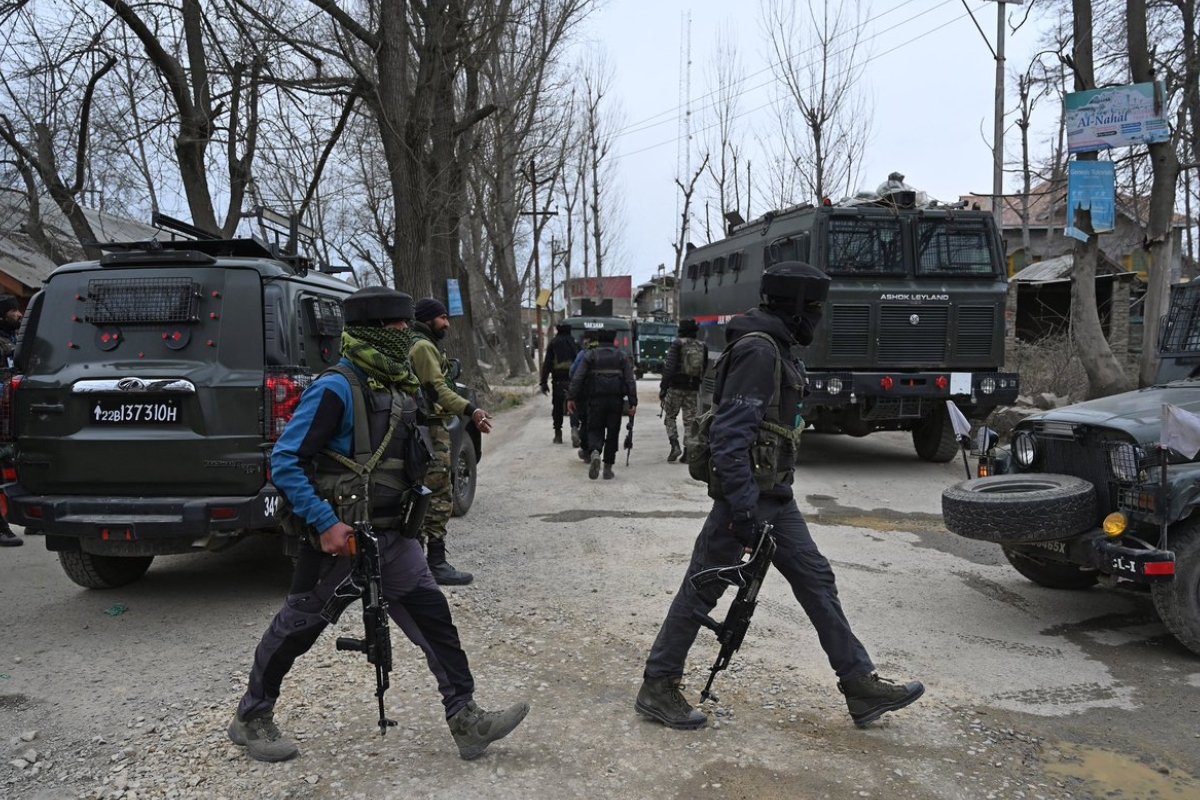An army court has recommended life imprisonment for Captain Bhoopendra Singh in connection with the killing of three men in a “staged encounter” in Kashmir’s Amshipora. The decision came less than a year after the completion of general court martial proceedings, according to army sources.
Captain Singh was under court martial after a Court of Inquiry and Summary of Evidence found that troops had “exceeded” the powers vested under the Armed Forces (Special Powers) Act (AFSPA), they said. The life sentence is subject to confirmation by higher army authorities, the officials said.
On July 18, 2020, the army claimed to have killed three unidentified terrorists in Amshipora village in Shopian. It also claimed that two pistols were recovered from the slain terrorists.
The three men, hailing from the Rajouri district of the Jammu region, Imtiyaz Ahmed, Abrar Ahmed and Mohammed Ibrar, were killed in a remote hilly village in the Shopian district.
Two weeks later, three families from Rajouri contacted the Jammu and Kashmir police and reported that their family members were missing after they had gone to Kashmir looking for work.
Subsequently, the men killed in Amshipora were identified by Rajouri families as the missing men from their families. As doubts were raised on social media over the killings, the Army promptly constituted a Court of Inquiry, which found prima facie evidence that the troops had “exceeded” the powers vested under AFSPA.
The Court of Inquiry was followed by the Summary of Evidence, which was completed in the last week of December 2020.
After the inquiry was completed, it came to light that the said encounter was a fake, carried out by men of the 62RR and led by Captain Singh. Court martial proceedings followed thereafter.
The Army had issued a statement saying “the process of recording the Summary of Evidence has been completed.
“The same is being examined by the authorities concerned in consultation with legal advisors before proceeding further. The Indian Army is committed to the ethical conduct of operations,” it had said.
The officials said the court martial proceedings were then initiated against Captain Singh for violating the powers vested under the AFSPA and for not following the dos and don’ts of the Army as approved by the Supreme Court.
The Army had also called Mohammed Yusuf, the father of Abrar Ahmed, from Rajouri for his deposition in the court martial proceedings, during which he was asked to provide a missing report about his son.
The Jammu and Kashmir Police had also constituted a Special Investigation Team, which filed a charge sheet against three people, including Captain Singh, for “staging a fake encounter”.
Jammu and Kashmir Lieutenant Governor Manoj Sinha visited the families in Rajouri in 2020 and conveyed Prime Minister Narendra Modi’s message that the government stood with the aggrieved families and that they would be taken care of with all the support from the government.
The identities of the three youths were subsequently confirmed through a DNA test. The bodies were handed over to their families in Baramulla in October 2020 and buried in their native village in Rajouri.
The government had also awarded a compensation of ₹5 lakh with the promise of a government job to each of the families of the victims.
The SIT charge sheet alleged that Captain Singh provided wrong information to his superiors and the police about the recovery made during the staged encounter.
The two other persons named by the police in its charge sheet are Tabish Nazir and Bilal Ahmed Lone, both civilians.
“By staging the encounter,” the three accused “have purposefully destroyed evidence or real crimes that they have committed and also have purposefully projected false information as part of a criminal conspiracy hatched between them with the motive to grab” cash rewards, it said.
The army had, however, denied that its captain staged the encounter for a cash reward, saying there was no such system for its personnel for any acts in combat situations or otherwise in the line of duty.










